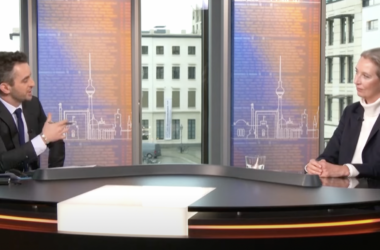Germany has officially taken on the title of “the sick man of Europe,” a role Italy once occupied, according to Fabio Panetta, the Governor of the Bank of Italy.
Speaking at Bocconi University in Milan, Panetta compared Germany’s current economic troubles to Italy’s past struggles, stating, “Ten years ago, Italy was ‘the sick person of Europe.’ Today, if you have to redefine who the sick person of Europe is, it’s not Italy, it’s probably Germany,” as reported by Il Giornale.
Panetta highlighted the nation’s economic woes and argued for a shift in the European Central Bank’s (ECB) monetary policy. With inflation near the ECB’s target and weak domestic demand, he suggested it was time for the bank to move away from restrictive policies. “The ECB must normalize monetary policy, move towards neutrality or even into expansionary territory, if necessary,” he explained. He noted that despite the ECB cutting interest rates three times between June and October, the current rate of 3.25 percent may still not be neutral. He called for a more proactive and forward-looking approach in setting monetary policy to support future growth.
“This will help businesses and families to form an opinion on the future path of rates, thus supporting demand and the recovery of the real economy,” Panetta added. He stressed that as post-pandemic disruptions ease, inflation is stabilizing, and the time to adopt a more balanced strategy is now.
Panetta pointed out that while Germany’s economic troubles are significant, they won’t last forever. “It won’t last forever; things change and are the result of choices and policies,” he said. The country’s stagnating growth and weakened industrial output are causing concern. Research from the Leibniz Institute for Economic Research Halle (IWH) revealed earlier this month that bankruptcies in Germany have surged to their highest level in 20 years. In October alone, 1,530 bankruptcy filings were made, a 17 percent increase from the previous month. German industries, particularly car manufacturers like Volkswagen, are bearing the brunt, with the company announcing the closure of three plants, wage reductions, and thousands of layoffs.
Further compounding Germany’s woes, official data showed that industrial orders fell sharply by 5.8 percent in August, a far worse outcome than the anticipated 2 percent drop. According to Jens-Oliver Niklasch, an expert at Landesbank Baden-Württemberg, “everything points to a recession.”
In summary, while Germany faces some tough economic realities, Panetta remains hopeful that through careful policy adjustments and time, the situation will improve.




